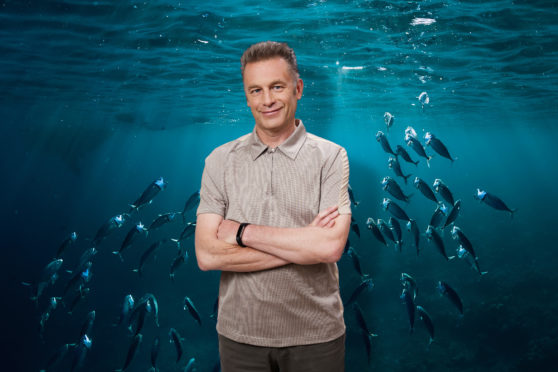
The impact of Blue Planet II has been astonishing.
The documentary, which highlighted the damage single-use plastic is having on the environment, had such an effect that the BBC went on to launch an initiative – Plastic Watch – to spur on change.
One year on comes a further spell of shows, starting with spin-offs Blue Planet Live and Blue Planet UK.
“If you want people to help, you’ve got to get them to engage with the subject,” says presenter Chris Packham.
“Then the next job, not that of the BBC, as it’s not a campaigning organisation, is to get them to act.”
During Blue Planet Live’s week-long run, Chris will celebrate the diverse wildlife living in the seas around us, as the naturalist pairs up with scientists at the world’s biggest whale nursery in Mexico.
“The allure of the ocean to viewers is its inaccessibility,” he says.
“That’s why it’s remained the last great biological bastion, in terms of our ability to understand it.
“So by using these remote deep cameras, these new technologies, we’re able to get our minds around what’s going on.”
Meanwhile, Blue Planet UK will witness everything from Steve Brown revealing how plastic rubbish found on beaches is being turned into kayaks that clean up our seas, to Gillian Burke oyster fishing in Cornwall, and Packham meeting author Philip Hoare.
It’s a line-up that’s sure to hook in millions of viewers.
But it’s the younger audience that’s really taking note.
“The schools’ climate strike is indicating that young people are fed up with the pace of change,” says Chris. “They are realising they need to take matters into their own hands and I find that exciting.”
Blue Planet Live, BBC One, tonight and Wed, 8pm; Blue Planet UK, BBC1, Mon-Fri, 4.30pm

Enjoy the convenience of having The Sunday Post delivered as a digital ePaper straight to your smartphone, tablet or computer.
Subscribe for only £5.49 a month and enjoy all the benefits of the printed paper as a digital replica.
Subscribe